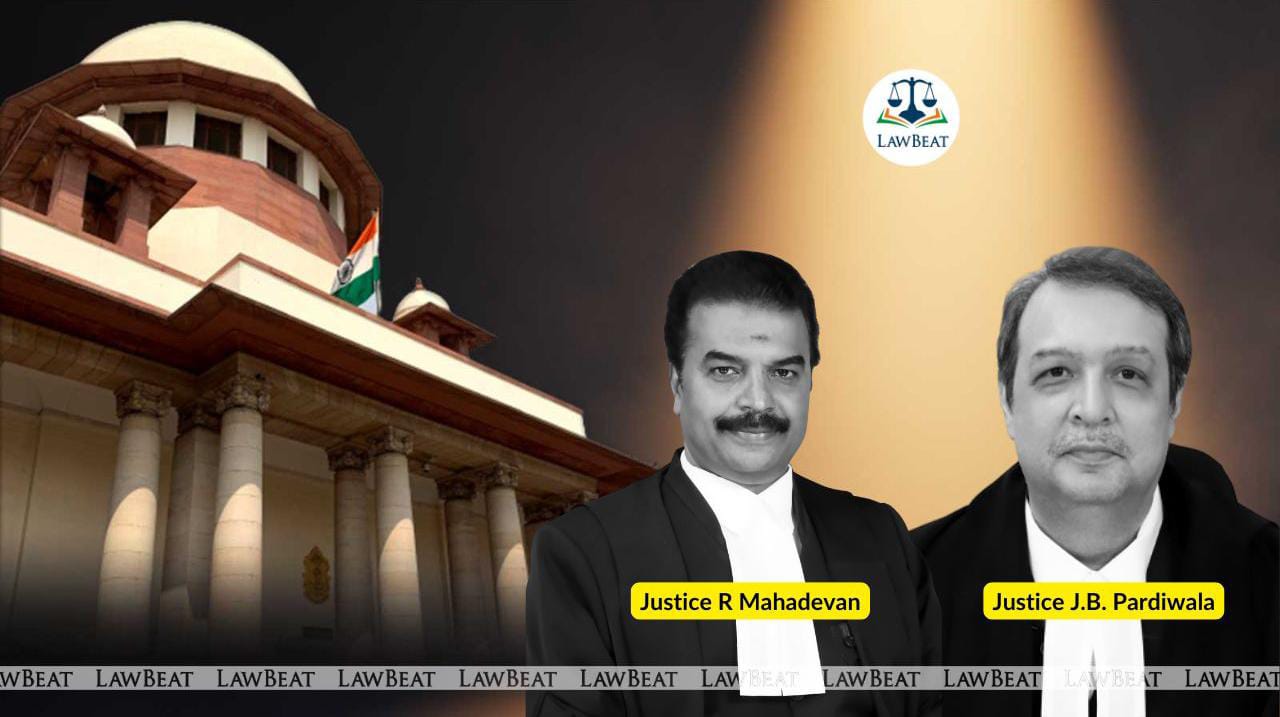Suit for recovery of money prohibited among partners by unregistered firm: SC

Court noted the present suit had not been instituted by or on behalf of the firm against any third persons so as to fall under the ambit of Section 69(2) of the Partnership Act
The Supreme Court has said Section 69(1) of the Partnership Act prohibits a suit amongst the partners of an unregistered partnership firm for the enforcement of a right either arising from a contract or conferred by the Act unless the suit amongst the partners is in the nature of dissolution of the partnership firm and/or rendition of accounts.
"Section 69(2) prohibits the institution of a suit by an unregistered firm against third persons for the enforcement of a right arising from a contract. As a consequence, a suit filed by an unregistered partnership firm and all proceedings arising thereunder, which fall within the ambit of Section 69 would be without jurisdiction," a bench of Justices J B Pardiwala and R Mahadevan added.
Court dismissed a special leave petition filed by Sunkari Tirumala Rao and others against the order of the High Court of Andhra Pradesh at Amravati passed on July 17, 2019, in a civil revision petition.
The high court allowed the revision filed by the respondents (original defendants) and thereby set aside the order passed by the District Judge, Vizianagaram in the original suit deciding a preliminary issue as regards the maintainability of the suit instituted by the petitioners (original plaintiffs) for recovery of money to the sum of Rs 30 lakh.
The trial court held that the suit was maintainable, taking the view that although there was a partnership deed on record yet as the partnership business had not commenced, the suit could be said to be maintainable.
The defendants being dissatisfied with the order passed by the trial court deciding the preliminary issue challenged the same by filing a civil revision application before the high court.
The high court held that the suit was not maintainable, being hit by Section 69 of the Partnership Act.
In the case on hand, the court noted the petitioners (original plaintiffs) had filed the suit for recovery of money in their capacity as partners of an unregistered partnership firm, against the respondent (original defendant) in her capacity as a partner of the same unregistered partnership firm.
The trial court itself had arrived at a finding that the agreement executed between the parties was in fact a partnership deed and not a bond as claimed by the petitioners, court noted.
Court pointed out that a perusal of the partnership deed clearly revealed that the sum of Rs 30 lakh which was given to the respondent and sought to be recovered, was rendered by the petitioners as capital for the purpose of acquiring 75% shares collectively in the partnership firm.
As per the arrangement, the respondent was to hold the remaining 25% shares. "Therefore, there is no doubt that the suit for recovery was filed by a set of partners together on one side, against another partner, for the purpose of enforcing a right accruing under the agreement", it noted.
"It is a clear as a noon day that the present suit had not been instituted by or on behalf of the firm against any third persons so as to fall under the ambit of Section 69(2). The petitioners have also not filed the instant suit for enforcing any statutory right conferred under any other law or a common law right so as to exempt the application of Section 69. Hence, the rigours of Section 69(1) would apply on such a suit and the partnership firm being unregistered would prevent the petitioners from filing a bare suit for recovery of money from the respondent," the bench said.
It opined that it would have instead been appropriate for the petitioner to have preferred a suit for dissolution of the partnership firm and rendition of accounts, especially considering that the factum of non-registration of the partnership firm would not have acted as bar in a suit for dissolution in light of the exception carved out under Section 69(3).
"The defence that the partnership business had not yet commenced and thus, such a suit for dissolution could not have been preferred, would not be of any avail to the petitioners, particularly for overcoming the jurisdictional bar under Section 69(1)," the bench said.
The court felt that the high court was right in taking the view that a suit of such nature could not be said to be maintainable in the absence of the registration of the partnership firm.
"We are of the view that no error not to speak of any error of law could be said to have been committed by the High Court in passing the impugned order," the bench said.
Case Title: Sunkari Tirumala Rao & Ors Vs Penki Aruna Kumari
